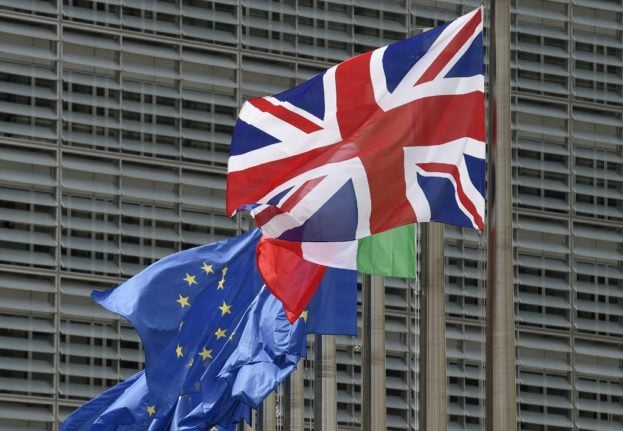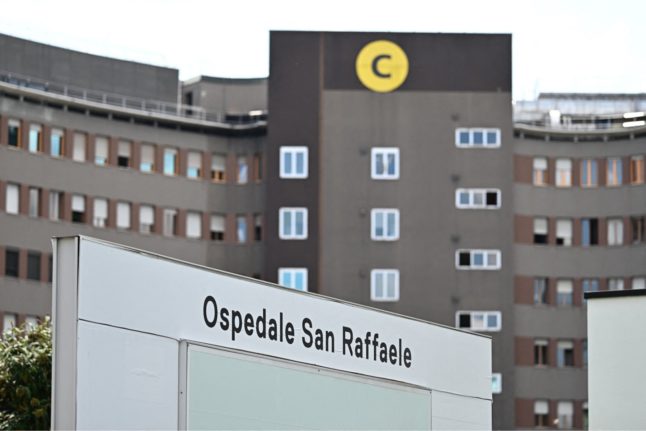“British in Italy found profoundly depressing the recent spate of copycat articles in the pro-Brexit British press about problems experienced by UK nationals in the EU,” read a statement from the citizens rights group British in Italy.
The articles, which included ones published in the pro-Brexit newspapers the Daily Mail and the Sun, were accused of being factually wrong as well as confusing British citizens living in the EU with British tourists or second-home owners.
“The quality of journalism in these articles was very poor with errors including confusing the position of those who are protected by the EU/UK Withdrawal Agreement with that of tourists or illegal stayers, and multiple errors about our rights,” British in Italy said.
“The theme of the articles is best summed up by the Sun’s headline saying that these problems were the result of “Brexit revenge rules” introduced by various EU governments.
“As we pointed out in our letter to the Sun (which of course they never published) “Italy has been slow to update its public computer systems …. and slow to issue the card which proves that we are resident, and these failures have led to some people losing work, being unable to buy or rent a home or get benefits.
“This has caused them devastating problems which British in Italy is campaigning to get sorted, but none of it is “Brexit revenge” and nobody who knows Italy or Italians would dream of calling it that.”
READ ALSO:
- ‘What I learned when I applied for the Brexit residence card for Brits in Italy’
- What are the different documents Italy’s British residents need after Brexit?
- OPINION: Brits in Italy aren’t victims of a ‘hostile environment’ but of a bureaucratic system that wasn’t ready for Brexit
The same sentiments were echoed by Clarissa Killwick from the group Beyond Brexit – British citizens in Italy, who said: “Unfortunately, in some of the UK press, unrelated bureaucratic problems in Italy got “hijacked”, sharing the same, sometimes inflammatory, headlines. It is important to keep things in proportion.
“In our group, which provides support and information on post-Brexit citizens’ rights issues, yes, we are still having problems reported almost on a daily basis. To add balance though, many individuals are managing to resolve difficulties, with say a house purchase, renewing a health card or getting a work contract.”
“Whilst some carta di soggiorno residency cards have now been issued, there remain delays because of technical issues with fingerprinting and lead times for getting appointments.
“It must also be said, hats off to the staff in the immigration offices all round the country for their patience and helpfulness that many of our members are reporting.”
Following the coverage and subsequent confusion, British in Italy gave the following information to set the record straight regarding the rights of British citizens in the country:
- Those who were resident in Italy (or frontier working) before December 31st 2020 are protected by the Withdrawal Agreement.
- This means that they retain all their old EU citizen rights in Italy other than the right to vote and the right to apply after 31/12/20 for a qualification to be recognised. Outside Italy we have lost EU freedom of movement and some other rights to initiate activity in the EU institutions.
- It is not just those with permanent residence (soggiorno permanente) that have retained these rights. Anyone who was resident at 31st December and continues to be so thereafter has them. Permanent residence is a status which we are entitled to after 5 years residence: this was true before December 31st and remains true now under the Withdrawal Agreement. The rights of permanent residents are in some respects better than those of people with less than 5 years residence.
- Being obliged to register as resident is nothing new and has nothing to do with Brexit. In Italy everyone, whether Italian national, EU citizen or extracomunitario, is obliged to register their residence.
- Italy is in the process of issuing a carta di soggiorno to those of us covered by the Withdrawal Agreement. It is not obligatory but British in Italy is strongly advising people to apply for it, as it is the best proof of our status when we are asked by any official for a ‘documento’.
- None of this is to be confused with the situation of those who arrived in Italy after December 31st, or were not regularly resident at that date. Like all other non-EU citizens they are subject to the Schengen visa rule that they can only visit for up to 90 days in any period of 180, unless of course they have a visa to work, settle, study etc.
Anyone in Italy who needs help regarding their rights post-Brexit is advised to contact the British Embassy via their Living in Italy website
You can also contact the International Organisation for Migration by emailing [email protected] or calling 800 684 884.
Find more information on the British in Italy website and Beyond Brexit page.



 Please whitelist us to continue reading.
Please whitelist us to continue reading.
Member comments